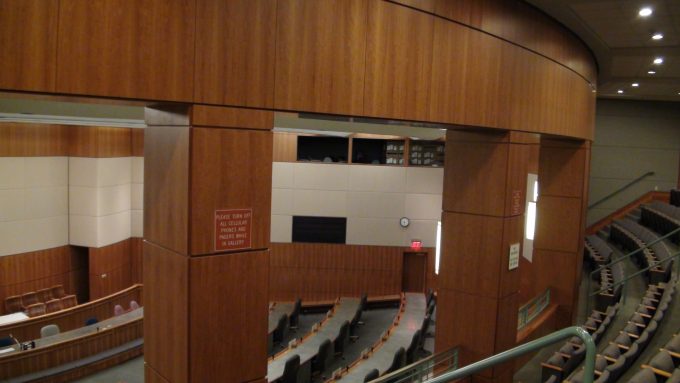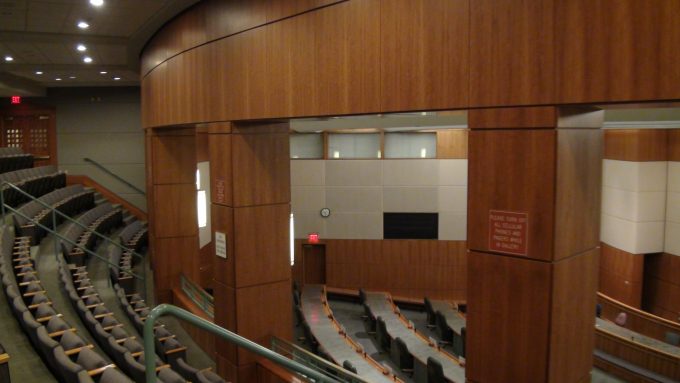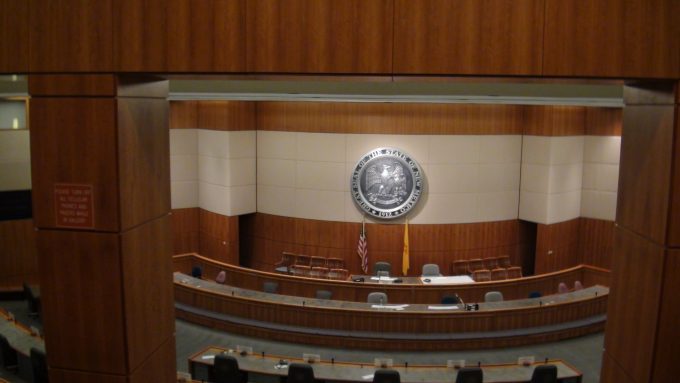
Tuesday, 8 January 2019
For when Moses had spoken every precept to all the people according to the law, he took the blood of calves and goats, with water, scarlet wool, and hyssop, and sprinkled both the book itself and all the people, Hebrews 9:19
The words now give a general description of the rites associated with the establishment of the Mosaic Covenant as has been discussed in verses 9:16-18. “For when Moses” shows that the author has been referring specifically to the Mosaic Covenant. His words have not been speaking of either a “will” or a “testament,” but a covenant. At that time, “Moses had spoken every precept to all the people.” That is seen in Exodus 24:6, which will be cited below. The words he read out to the people were “according to the law.” In other words, he read the agreement which was to be ratified between the Lord and the people, openly and fully. There was nothing hidden from their ears concerning the covenant.
After that, “he took the blood of calves and goats, with water, scarlet wool, and hyssop, and sprinkled the book itself and all the people.” The details here do not specifically match what was stated in Exodus 24. For example, it only says “oxen” were sacrificed as burnt and peace offerings. However, the term, “calves and goats,” could be a simple all-inclusive idiom. Or, it could be that the goats were part of an unrecorded sin-offering. Further, the mixture of water, scarlet wool, and hyssop is not specifically referred to in Exodus 24. This doesn’t mean Moses didn’t do this, but rather that it is simply unrecorded. In this, the author is detailing what was known to have occurred.
As an explanation of these things, the mixture mentioned included –
1) The blood of calves and goats. This indicates that young and innocent lives were sacrificed to seal the covenant when accepted by the people. The exact animals, and how they point to Christ, are discussed in the corresponding Superior Word sermons.
2) The water. This was mixed into the blood as a foreshadowing of the blood and water that came from Christ’s side –
“But one of the soldiers pierced His side with a spear, and immediately blood and water came out.” John 19:34
3) The scarlet wool. This points to Jesus’ sacrifice and the cleansing it provides –
“‘Come now, and let us reason together,’
Says the Lord,
‘Though your sins are like scarlet,
They shall be as white as snow;
Though they are red like crimson,
They shall be as wool.’” Isaiah 1:18
4) The hyssop. This is a plant similar to mint and was symbolic of the cleansing power of Jesus. David uses the terminology of such cleansing –
“Purge me with hyssop, and I shall be clean;
Wash me, and I shall be whiter than snow.” Psalm 51:7
The procedure Hebrews is alluding to is mentioned in the book of Exodus, and the mental picture it provides is sobering –
“And Moses took half the blood and put it in basins, and half the blood he sprinkled on the altar. 7 Then he took the Book of the Covenant and read in the hearing of the people. And they said, ‘All that the Lord has said we will do, and be obedient.’ 8 And Moses took the blood, sprinkled it on the people, and said, ‘This is the blood of the covenant which the Lord has made with you according to all these words.’” Exodus 24:6-8
Even the people were sprinkled with the blood of the covenant. This made it binding on them as they said, “we will do, and be obedient.” However, as Paul states elsewhere –
“But that no one is justified by the law in the sight of God is evident, for ‘the just shall live by faith.’” Galatians 3:11
As you can see, the people promised something they could never fulfill. God knew this, but in His great mercy He provided a covering for them each year on the Day of Atonement; a day which looked ahead to its fulfillment in Jesus.
Life application: The rites of the Old Covenant continually looked forward to their fulfillment in Christ Jesus. They were only types and shadows of what was to come in Him. They actually did nothing but anticipate His fulfillment of these things. To understand what has only been briefly discussed in this verse’s commentary, go back and watch all of the Superior Word sermons in the Pentateuch. You will have a well-rounded understanding of the typology presented there, as well as its fulfillment in Christ.
Lord God, looking at the intricacies of Your plan of redemption, we can see the absolute wisdom in all You have done, and the glory of the promises which are yet ahead for those who have come to You in faith through Christ. Truly, we stand in awe of this plan – from Genesis to Revelation. Glory and praises – they surely belong to You! Amen.




